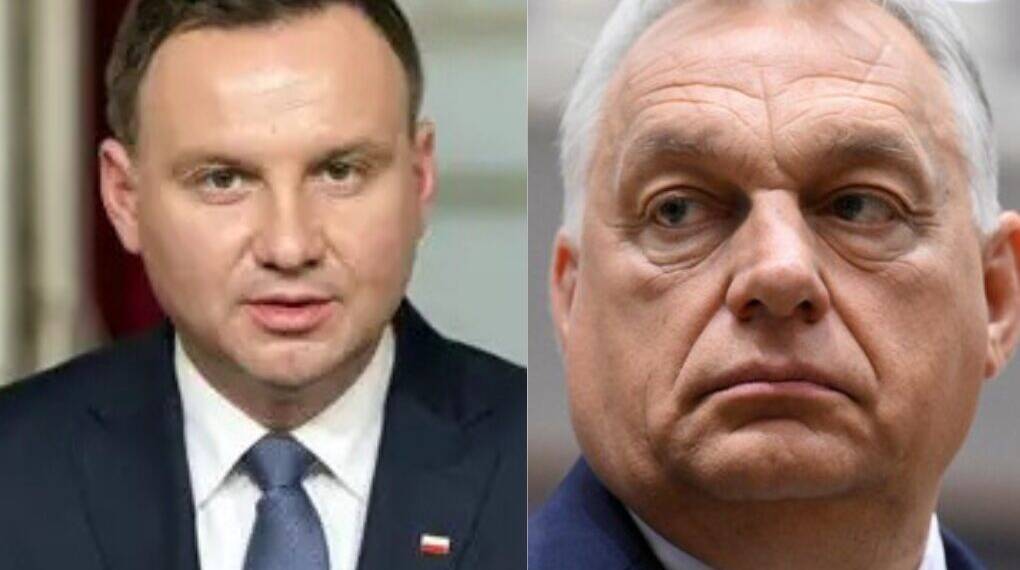A once-vaunted friendship between two of Central Europe’s staunchest conservative allies has now fractured dramatically. Poland has formally recalled its ambassador to Hungary, Sebastian Kęciek, marking an unprecedented and indefinite downgrade in diplomatic relations between the two nations. The announcement made on July 17 by Poland’s Ministry of Foreign Affairs has been widely interpreted as a retaliation for Hungary’s decision to grant political asylum to former Polish Deputy Justice Minister Marcin Romanowski, who is under criminal investigation.
Hungary’s Deputy Foreign Minister Levente Magyar acknowledged the move in a Facebook post, calling it “regrettable” but “not unexpected.” He insisted that while relations have deteriorated, the Hungarian side still hopes for reconciliation, characterizing the freeze as a “temporary situation.”
Asylum Sparks Diplomatic Fallout
At the center of the dispute is Marcin Romanowski, a senior official in Poland’s previous PiS (Law and Justice) government. Facing charges related to misappropriation of €40 million and allegedly participating in an organized criminal group, Romanowski fled to Hungary in late 2024. When Hungary granted him asylum, citing concerns about the impartiality of Poland’s judiciary under Donald Tusk’s centrist government, Warsaw responded with fury.
Paweł Wroński, spokesperson for the Polish Foreign Ministry, accused Hungary of breaching EU norms and “acting in a hostile manner.” The ministry’s statement emphasized that the downgrade in diplomatic ties reflects not only Hungary’s asylum decision but a broader erosion of trust in bilateral relations.
Old Allies Turn Adversaries
The diplomatic rupture symbolizes a larger geopolitical realignment. Once celebrated as the backbone of the Visegrad Group—an alliance including the Czech Republic, Slovakia, Poland, and Hungary had maintained a firm front against EU federalism, open-border policies, and progressive social reforms. That alliance is now in tatters.
Viktor Orbán and the PiS-led Poland were ideological twins, bound by nationalism, skepticism of Brussels, and shared cultural conservatism. However, the war in Ukraine has exposed deep rifts. Poland, under Donald Tusk, is firmly pro-Ukrainian and critical of Russia, while Hungary, under Orbán, has maintained a more conciliatory tone towards Moscow. Orbán’s recent accusation that Poland exhibits “the most moralizing and hypocritical politics in all of Europe” starkly contrasts with his warm praise of Polish friendship just a few years prior.
EU Presidency Gala Snub and Beyond
Tensions were already evident earlier this year when Poland, assuming the rotating presidency of the EU Council, deliberately excluded the Hungarian ambassador from its opening gala. Orbán himself was not invited—a diplomatic signal that Warsaw’s patience had run thin.
The fallout may have long-lasting implications. With Visegrad cooperation already frozen for several years, this rupture puts a question mark on the bloc’s relevance in a post-Ukraine invasion Europe.
Nawrocki’s Gambit: Signs of Mixed Messaging
Amid the frosty climate, a surprising move from Polish President-elect Karol Nawrocki has added another twist. In a break from expected protocol, Nawrocki granted his first foreign interview not to a major European outlet, but to Mandiner, a Hungarian pro-government media group closely aligned with Orbán.
Critics have pounced on the decision as tone-deaf at best and duplicitous at worst. While the Tusk administration pursues a hard diplomatic line against Budapest, Nawrocki’s overture to Orbán’s media ecosystem may suggest a future tug-of-war over foreign policy in Warsaw. His stance mirrors PiS-era skepticism of deeper EU integration and cautious support for Ukraine, more in step with Budapest than Brussels.
Future Uncertain, Ties Chilled
Despite Magyar’s insistence that the ambassadorial freeze is temporary, there is no clear timeline for normalization. With diplomatic duties now delegated to a chargé d’affaires, and growing hostility over issues from Ukraine to corruption, the old “Warsaw–Budapest axis” appears to be more myth than reality.
As political analysts debate the potential unraveling of Visegrad unity, one thing is certain: Central Europe’s diplomatic landscape is undergoing a seismic shift. Whether it leads to a reconfiguration of alliances or further polarization within the EU remains to be seen.








